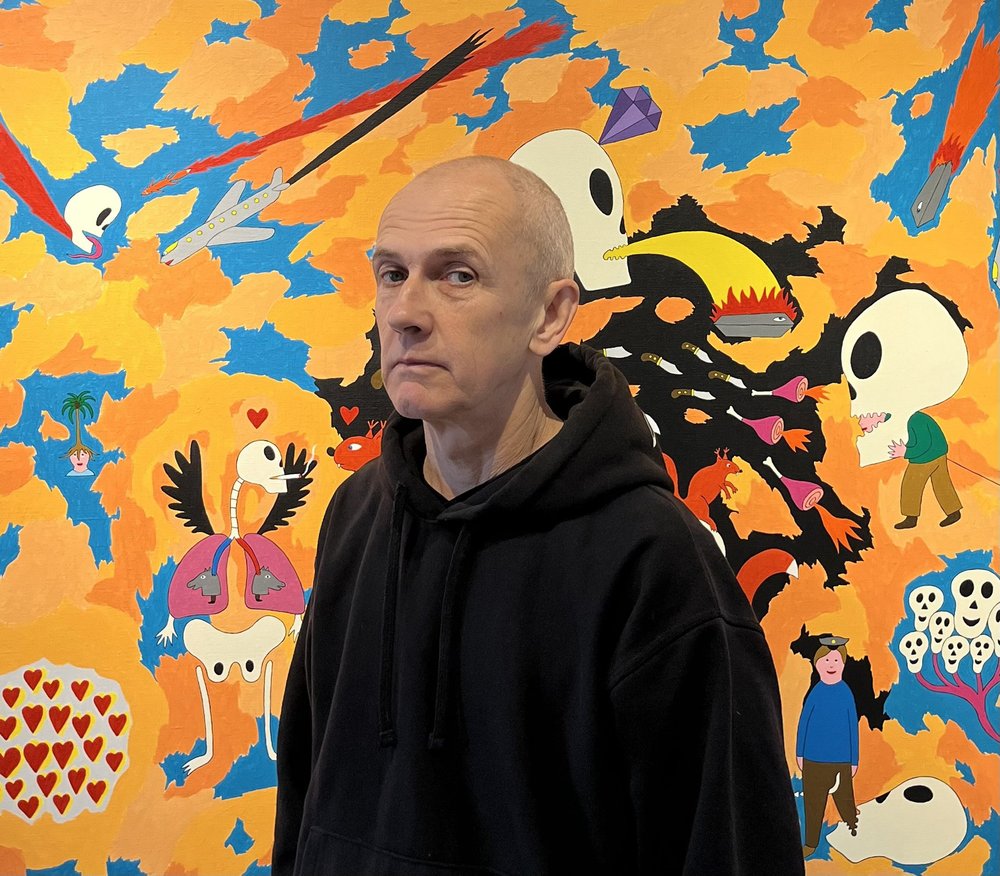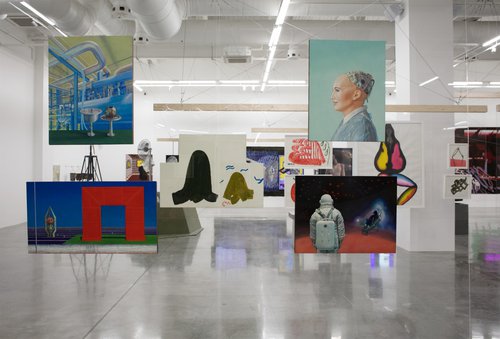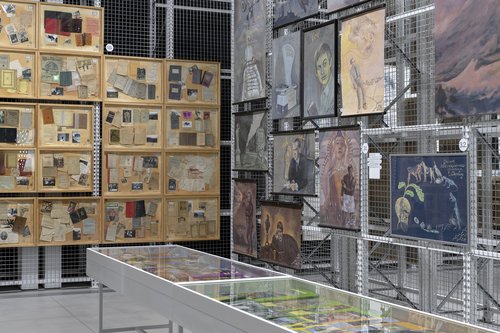Fairy Tales as a Mirror of Society: Marko Mäetamm

Portrait of Marko Mäetamm. Courtesy of the artist
‘Unlearning Right from Wrong’ is a solo exhibition of recent works by Estonian artist Marko Mäetamm which is currently on view at the Iragui gallery on the outskirts of Paris. It tells of the contemporary human predicament as we juggle our personal choices, censorship and misinformation.
Award-winning Estonian multimedia artist Marko Mäetamm (b.1965) has produced dozens of illustrated books and is a poignant narrator and observer of contemporary society and the state of individuals in it. Whether painted in acrylic on canvas, created through animation, as installations or prints, his stories are always ironic, sad and based on true life. Today Mäetamm lives in Tallinn he has represented Estonia at the Venice Biennale twice: in 2003 together with Estonian painter Kaido Ole (b.1963) under the pseudonym of John Smith, and once more in 2007.
Mäetamm´s solo exhibition curated by British curator Alistair Hicks is currently on show at Iragui gallery in the Komunuma art cluster on the outskirts of Paris. Initially Mäetamm graduated as a print maker and has never since completely abandoned text as his preferred medium. “When I was still an art student my works had very long and narrative titles and often my first ideas come from a text - some strange sentence, a word or short story triggers me to make a work”, he reflects. He did go through a period when images were not combined with text but in the end came to the conclusion that beyond images he “needed more ways of telling the stories”.
The show at Iragui is centred around a series of diasec prints on paper which he made last year, a work called ‘Once upon a Time’ which brings together fourteen traditional fairy tales each of which Mäetamm has transformed. The familiar protagonists in these traditional stories who are usually repressed in one way or another, finally achieve their emancipation in his works although do not expect anything anodyne: Mäetamm brings a brutal lashing of irony where Hansel and Gretel hang their stepmother from a tree, Bambi plays with a human skull, and three little pigs kill the wolf and have a party. In places the narrative fabric of the fairy tales weaves into today’s reality: King Solomon flying on a magic carpet is hit by a ballistic missile and a mermaid gets stuck inside a broken gas pipe.
For artists and writers, fairy tales have always been the perfect genre suited to escaping state censorship and enabling controversial topics to be aired in the public space. Yet Mäetamm seems more concerned by personal censorship and social prejudices: “I think the trigger to create this series came from cancel culture when we all began to hear stories about well-known books being rewritten with the ‘wrong words’ being edited out”. For Mäetamm even as a kid, fairy tales were always associated with something that was prohibited: “Those stories have so much that is dark and problematic inside them, so much hidden violence, so much that is forbidden”.
Elsewhere in the show there is a multimedia piece, a seven-minute animated short film called ‘Story of a man who is living in the woods’ about a simple man who is struggling to provide for his family. To solve his problems he takes bloodcurdling measures - he ruthlessly starts to kill his own children, his wife, then his dog, each time justifying to himself what he has done. The film shows us a path of dehumanisation and how someone can endlessly justify his or her own crimes. Mäetamm sees this exaggerated brutal fantasy of how a “good man loses everything” as not far from what is a common predicament of “losing your job, not being able to pay the mortgage, losing everything, committing suicide out of a sense of desperation and then even killing your family to save them from misery – these stories are real, or at least they were very real in Estonia two decades ago”. Mäetamm emphasises grimly that despite the grotesque finale in his work “it could have easily been a real story.” According to exhibition curator Alistair Hicks the film shows us an image of the lack of personal choice and its brutality.
Also created in 2023 is Mäetamm’s ‘Offensive Books’ series which reflects the rise of censorship. Here again, the artist is more focused on what people forbid themselves – personal censorship rather than state censorship. His prints declare that some books become too “offensive” for “losers”, or are for “people who don’t have any sense of humour” or are “for high achievers”.
‘Unlearning Right from Wrong’ the work from which the exhibition at Iragui takes its name, is something that has always concerned Mäetamm. Alphabet of Lies (2013), I’m Always Right (2020), They Say (2021) all reflect the weaknesses of human nature, a chain of bad choices that can lead to a catastrophe. Observing the flux of disinformation is hard, Mäetamm says “my hands are too short to fix these things. I am not sure if art can even find solutions or point out what is wrong or what is right”. However, he remains optimistic: “Is one great painting able to stop the war? I doubt it. But of course one great painting can start a discussion about it.”
As you leave the show, there is a final thought-provoking work, an installation in the form of a huge golden goblet with Mäetamm’s name on it, it may shine but what use does it have: “when you are in your studio and starting a new work, no awards you got in the past can help you to make a better work”.
Unlearning Right from Wrong. Marko Mäetamm
Romainville, Grand Paris, France
January, 14 — March 8, 2025



























